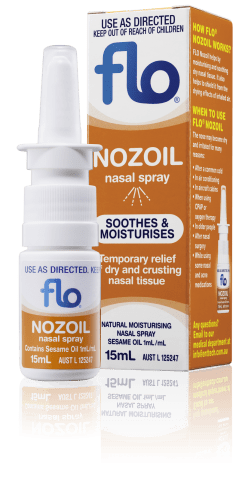AHI Index Sleep Apnea
Understanding the AHI Index and Sleep Apnea
If you’ve heard of the term AHI – short for Apnea-Hypopnea Index – you might wonder what it means and why it matters. For anyone newly diagnosed with sleep apnea or preparing for a sleep study, understanding AHI is an important first step in taking control of your health. In this guide, we’ll explain the AHI index in clear, friendly terms, walk you through how it’s measured, and explain how Sove CPAP Clinic supports you at every stage – from home testing to ongoing treatment.
The Apnea-Hypopnea Index Measures Breathing Interruptions During Sleep
The AHI, or Apnea-Hypopnea Index, is a measure used to quantify how many times per hour your breathing is interrupted while you sleep. These interruptions come in two forms:
- Apneas: Complete pauses in breathing for 10 seconds or more.
- Hypopneas: Partial blockages that significantly reduce airflow.
Together, these events disturb your sleep cycle and reduce oxygen levels, often without you even realising. AHI is calculated during a sleep study by counting the average number of apneas and hypopneas per hour of sleep.
The lower your AHI, the better. Here’s a general scale used to classify sleep apnoea severity:
- Normal: Fewer than 5 events per hour
- Mild: 5 to 14 events per hour
- Moderate: 15 to 29 events per hour
- Severe: 30 or more events per hour
Even mild sleep apnea can have a major impact on your energy, concentration, mood, and long-term health. That’s why early screening and treatment are important.
If you’ve been feeling tired despite a full night’s sleep, waking up with a dry mouth, or your partner notices loud snoring or pauses in breathing, it could be a sign of untreated sleep apnea.
AHI Scoring Is Central to Diagnosing Obstructive Sleep Apnea
Accurate diagnosis of sleep apnea depends on more than just symptoms. The AHI score offers objective, measurable data that sleep physicians use to confirm whether a person has sleep apnea – and if so, how severe it is.
During a sleep study, your breathing, oxygen levels, and other physiological markers are monitored. Based on this data, the AHI score helps determine the best course of treatment. Someone with an AHI of 8, for example, might be recommended lifestyle changes and ongoing monitoring, while a person with an AHI of 35 would likely benefit from CPAP therapy or further evaluation.
Because apnea can vary from night to night – and even within the same night depending on your position – sleep studies are essential to capture a full picture of your breathing patterns. That’s where at-home studies come in.
If you’ve been referred for a sleep study or simply want to investigate symptoms like fatigue, snoring, or poor sleep, Sove CPAP Clinic can guide you through the testing process – no hospital stay required.
Our Home Sleep Study Brings Sleep Apnea Screening Home
One of the most comfortable and accessible ways to assess your AHI is with a home sleep study. Rather than spending a night in a hospital or sleep lab, you can complete the test in the comfort and familiarity of your own bed.
After a short, friendly appointment with one of our experienced sleep technicians at Sove CPAP Clinic, you’ll head home with a lightweight, easy-to-use device. You’ll wear it overnight while you sleep as usual. It’s a simple, stress-free process that suits even the busiest lifestyles.
The device collects a comprehensive range of data, including:
- Brain activity (EEG)
- Heart rate
- Oxygen saturation
- Breathing effort and airflow
- Body movements and sleep positions
The next day, you return the device to our clinic. Your results are reviewed by independent sleep specialists who analyse the data in detail. We’ll then provide you with a personalised report, including your AHI score and clear recommendations for what to do next.
Patients often tell us they appreciate how convenient and non-intrusive this process is — perfect if you’re juggling work, family, or just prefer privacy and comfort.
If you’re not sure if a sleep study is right for you? Our team can help identify symptoms and risk factors, talk you through the process, and arrange a test that suits your needs – all with a focus on your wellbeing.
Your AHI Results Are Interpreted by Independent Sleep Specialists
After completing a portable sleep study, the next step is understanding your results. Your AHI score and overall sleep report are reviewed by qualified, independent sleep specialists who look at multiple factors:
- Your number of apneas and hypopneas
- Changes in blood oxygen levels
- Breathing patterns across different sleep stages
- How your position affects your sleep
These insights help create a full picture of your sleep health. It’s not just about the number – it’s about what those interruptions mean for your wellbeing.
Once your results are ready, we’ll walk you through them in a clear, supportive telehealth consultation. Whether your AHI is in the mild, moderate, or severe range, we’ll explain what it means and talk through next steps – including whether CPAP therapy, weight management, dental appliances, or lifestyle changes may be helpful.
Our clinicians are trained to support you at every stage, from interpreting results to selecting the right therapy. Many patients find comfort in knowing they’re not alone – our team is here to help you make informed decisions about your health.
ALWAYS FOLLOW THE DIRECTIONS FOR USE. CPAP is used for Obstructive Sleep Apnoea treatment. When considering whether a sleep study or CPAP is right for you, speak to your doctor. Medicare criteria and T&Cs apply.
Frequently Asked Questions
What symptoms usually come with a high AHI score?
A high AHI score means your sleep is frequently interrupted by apnea events, which can lead to a range of symptoms – many of which are easy to overlook or blame on other causes. Common symptoms include excessive daytime sleepiness, morning headaches, dry mouth, irritability, poor concentration, and memory lapses.
Partners often notice loud snoring, gasping, or even moments where breathing stops altogether. If untreated, a high AHI score can contribute to serious health conditions such as high blood pressure, cardiovascular issues, and increased risk of diabetes.
If these symptoms sound familiar, speak to our team at Sove CPAP Clinic. We can help you arrange a home sleep study to measure your AHI and take steps toward better sleep and health.
Can my AHI score change depending on how I sleep?
Yes, your AHI score can vary depending on your sleep position, alcohol intake, nasal congestion, and even the stage of sleep you’re in. For instance, sleeping on your back often worsens apnea, while side sleeping can reduce the number of events.
That’s why a comprehensive sleep study is so important – it captures your breathing patterns across the entire night in a variety of positions and conditions. Even mild sleep apnoea can worsen over time, so regular monitoring is key.
Do I need a sleep study again if I already know my AHI from years ago?
If it’s been several years since your last sleep study, it’s a good idea to repeat the test – especially if your symptoms have returned or changed. Factors like weight changes, age, new medications, or changes in your sleep routine can all influence your AHI.
Sleep apnea is a dynamic condition. What was once mild could become moderate or severe over time, and vice versa. Regular sleep studies ensure your treatment remains effective and properly tailored.
At Sove CPAP Clinic, we make retesting easy with at-home sleep studies, flexible return options, and follow-up consultations to keep your therapy on track.
Is CPAP therapy recommended for mild AHI scores?
In many cases, yes. CPAP therapy isn’t just for severe sleep apnea – it can also benefit people with mild AHI scores who are experiencing symptoms like fatigue, poor concentration, or mood changes. It’s especially useful if lifestyle changes alone haven’t been effective.
Some people with mild AHI may be candidates for alternate therapies, but if the symptoms are affecting quality of life, CPAP can be a powerful tool to restore restful sleep.
At Sove CPAP Clinic, we offer CPAP trials so you can try therapy at home and see how it improves your sleep and daytime wellbeing before committing long-term.
How does a CPAP machine reduce my AHI score?
CPAP machines work by delivering a constant stream of air that keeps your airway open while you sleep. This prevents the soft tissues in your throat from collapsing, which in turn stops apnea and hypopnea events from occurring.
With consistent use, CPAP therapy can dramatically lower your AHI – often to below 5 (normal range). Many users feel the benefits within days: better sleep, more energy, and sharper focus.
For the best results, work with our team to find the right mask fit, pressure settings, and comfort features. We offer comprehensive support to help you get the most from your therapy.
What happens if my AHI score stays high even with CPAP treatment?
If your AHI remains elevated despite using CPAP, it may indicate an issue with your mask fit, machine settings, or sleep hygiene. Sometimes additional conditions like central sleep apnea or mask leaks can interfere with effective therapy.
The good news is that most issues can be resolved with some troubleshooting and support. Our team will review your machine’s data, check your setup, and work with you to make adjustments.
At Sove CPAP Clinic, we offer ongoing support, including telehealth follow-ups, data reviews, and advanced troubleshooting. You’re not alone – our goal is to help you achieve restful, healthy sleep night after night.








